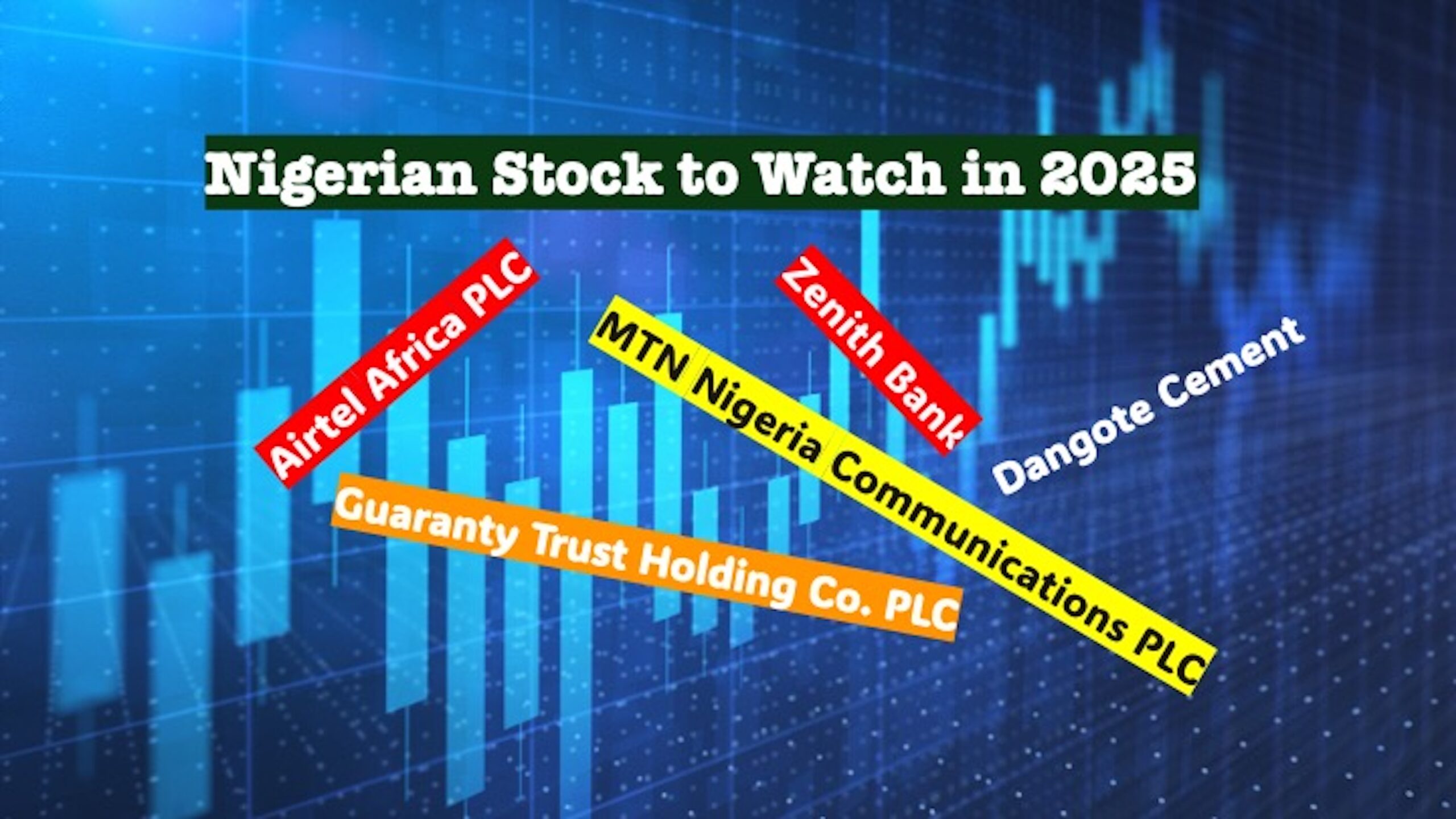Nigeria’s dynamic economy offers a plethora of opportunities for investors across various sectors. From the resilient telecommunications giants to the thriving banking industry, understanding the most lucrative sectors and their top-performing stocks can guide investment decisions and maximize returns. Here’s an in-depth look at Nigeria’s best-performing sectors and the key stocks driving their success.
1. Telecommunications: Driving Nigeria’s Digital Economy
The telecommunications sector is arguably Nigeria’s top performer, driven by rising internet penetration, increased mobile subscriptions, and growing demand for digital services. The sector has demonstrated strong resilience and growth, making it a favorite for long-term investors.
Key Metrics:
• Revenue Growth: Over 100% YoY in some cases.
• Profit Margins: High, with net margins exceeding 20% for top players.
• Resilience: Consistent performance even in economic downturns.
Top Stocks:
1. Airtel Africa Plc (AIRTELAFRI):
• Market Cap: NGN 8.2 trillion (largest on NGX).
• Revenue Growth: 108% YoY.
• Dividend Yield: 4.84%.
• Why Invest: Airtel dominates the African telecom market with a focus on data services and mobile payments, benefiting from digital adoption across the continent.
2. MTN Nigeria Communications Plc (MTNN):
• Market Cap: NGN 5.7 trillion.
• Revenue Growth: 35% YoY.
• Dividend Yield: 6.02%.
• Why Invest: A strong market position in Nigeria with a focus on digital services and financial inclusion through mobile money platforms.
2. Banking: A Haven for Value and Income Investors
The Nigerian banking sector continues to deliver high profitability and attractive dividends. Banks benefit from rising interest rates and a robust financial system, making this sector ideal for value investors.
Key Metrics:
• Dividend Yield: Highest on NGX, often above 9%.
• Profit Margins: Consistently strong, with many banks maintaining net margins above 20%.
• Valuation: Undervalued, with P/E ratios below 5.
Top Stocks:
• Market Cap: NGN 2.15 trillion.
• Dividend Yield: ~10%.
• P/E Ratio: ~3.2.
• Why Invest: Consistent earnings, market leadership, and high dividend payouts make Zenith a cornerstone for income-focused portfolios.
2. GTCO (Guaranty Trust Holding Co. Plc):
• Market Cap: NGN 1.02 trillion.
• Dividend Yield: ~9%.
• Why Invest: Known for its strong digital banking presence, GTCO combines growth potential with reliable income.
• Market Cap: NGN 785 billion.
• Revenue Growth: 108% YoY.
• Why Invest: Access Bank’s aggressive expansion strategy positions it as a leading player in the African financial services market.
3. Consumer Goods: Stable Growth in Defensive Stocks
The consumer goods sector thrives on Nigeria’s large and growing population. This sector is highly defensive, offering stability and consistent returns even during economic downturns.
Key Metrics:
• Revenue Growth: Moderate (10-50% YoY).
• Profit Margins: Steady, typically in the 15-20% range.
Top Stocks:
1. BUA Foods Plc:
• Market Cap: NGN 2.84 trillion.
• Revenue Growth: 44% YoY.
• Why Invest: Strong brand recognition and leadership in the food processing industry make BUA Foods a reliable investment.
2. Dangote Sugar Refinery Plc:
• Market Cap: NGN 567 billion.
• Dividend Yield: 5.5%.
• Why Invest: A major player in sugar production, benefiting from Nigeria’s growing demand for processed foods.
4. Industrial Goods: Benefiting from Infrastructure Development
Nigeria’s ongoing infrastructure development has fueled growth in the industrial goods sector, particularly in cement production. These companies enjoy high barriers to entry, ensuring sustained profitability.
Key Metrics:
• Revenue Growth: 15-20% YoY.
• Dividend Yield: High, often exceeding 7%.
Top Stocks:
• Market Cap: NGN 4.78 trillion.
• Dividend Yield: 7.54%.
• Why Invest: As Nigeria’s largest cement producer, Dangote Cement is critical to the country’s infrastructure projects.
• Market Cap: NGN 3.2 trillion.
• Why Invest: Consistent revenue growth and a focus on expanding production capacity.
5. Energy: Riding the Wave of Oil Recovery
The energy sector has rebounded strongly, driven by higher global oil prices and increased local production. Nigeria’s oil and gas companies are capitalizing on this resurgence.
Key Metrics:
• Revenue Growth: High during periods of rising oil prices.
• Profitability: Moderate but improving.
Top Stocks:
• Market Cap: NGN 1.4 trillion.
• Dividend Yield: 5.15%.
• Why Invest: Seplat’s focus on gas projects and renewable energy offers long-term sustainability alongside oil production.
6. Transportation: Emerging Opportunities in Logistics
Transportation and logistics have gained traction due to increasing trade and e-commerce activities. Companies in this sector are leveraging technology to streamline operations and expand their market share.
Key Metrics:
• Revenue Growth: Moderate to high (30-50% YoY for key players).
Top Stocks:
1. Skyway Aviation Handling Company Plc (SKYAVN):
• Market Cap: NGN 35.19 billion.
• Revenue Growth: 161.76% YoY.
• Why Invest: High growth in aviation ground handling services, driven by Nigeria’s recovering air traffic.
• Market Cap: NGN 4.68 billion.
• Dividend Yield: 5.51%.
• Why Invest: Consistent performance in logistics and courier services with solid dividend payouts.
Conclusion: Where to Invest?
For growth-oriented investors, the Telecommunications sector (Airtel Africa, MTN Nigeria) offers explosive potential as Nigeria embraces digital transformation. For income-focused portfolios, Banking stocks (Zenith Bank, GTCO) provide high dividends with strong valuations. Defensive investors may prefer Consumer Goods and Industrial Goods for their stability and long-term growth potential.
With Nigeria’s diverse economic opportunities, strategic investments in these sectors can yield significant rewards. Always consider your investment goals and risk tolerance before making decisions, and consult with financial advisors for tailored advice.
